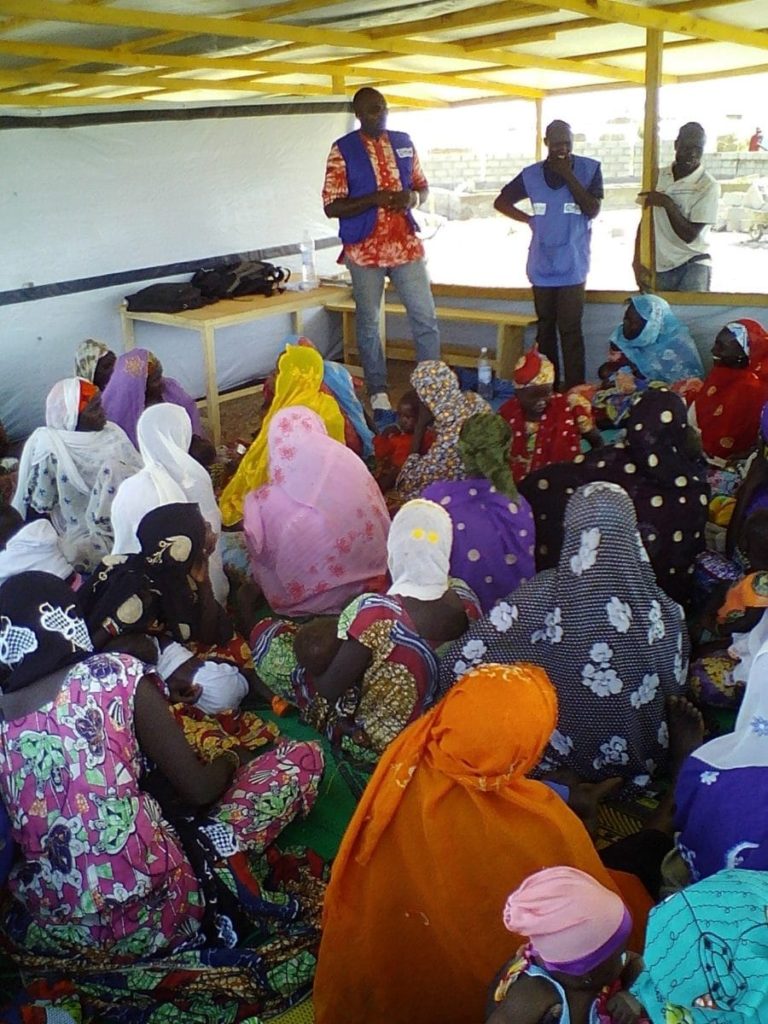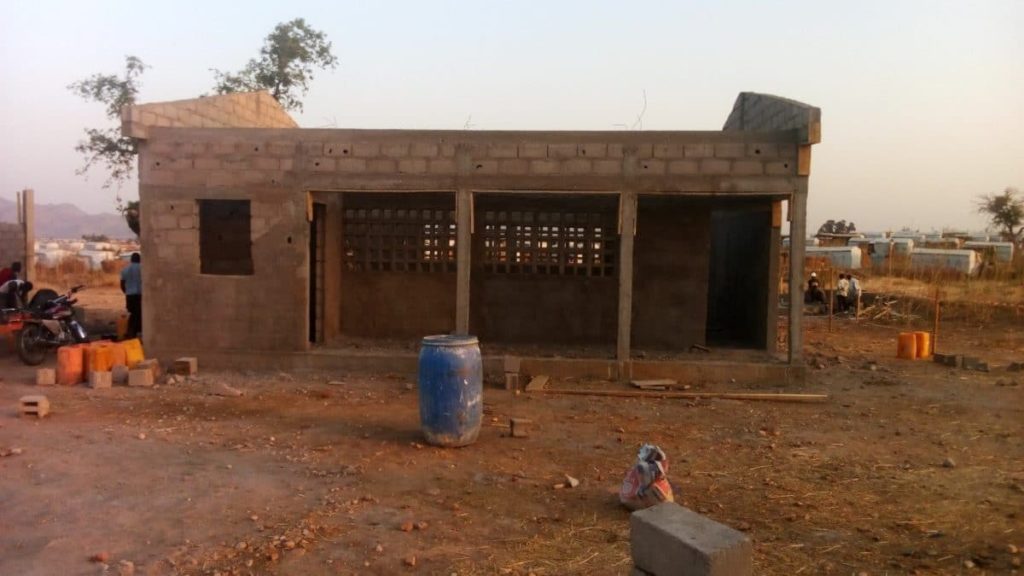Anne Marie McCarthy, Plan International Ireland’s Emergencies’ Coordinator reports live from Cameroon.
The first thing that hits you when you get off the plane in the late afternoon sunshine is the heat, and along with it, the anticipation of that moment when the air turns cooler as the sun goes down, the heure bleu, or blue hour, as a friend described it to me recently. It is the same sensation I had a few weeks ago as the sun set in Maiduguri, across the border in Nigeria. It is, after all, the same crisis, people displaced as a result of the actions of Boko Haram and the Lake Chad crisis. The Far North region of Cameroon hosts many refugees from Nigeria and also internally displaced Cameroonians.
Plan International Cameroon has been responding to the crisis since 2013 and works in Minawao Camp, which is home to close on 60,000 people. Plan International is responsible for the provision of pre-school activities for children aged 3-5. This includes the provision of classrooms and centres for the smaller children, digging latrines, as below, hygiene promotion activities and working with parents to encourage them to continue sending their children to school.

Recent rumors around insecurity in the classroom meant that some parents had stopped sending their children and interventions with the parents were needed to reassure them that the schools were safe.
In this part of Cameroon, French is more commonly spoken than English (spoken by the Nigerians in the camp) so caregivers for the children’s centers have been recruited among the refugee population. Camp residents are employed as much as possible in the building works, to give some income to these families.
When the building below, built with funds from Irish Aid, is finished, it will be used by kids who will get a chance to play and get ready for primary school. In the meantime they are using temporary structures build by Plan International.

For security reasons, I wasn’t able to visit the camp, so I did not have the opportunity to talk to people about life there, but I spoke to Plan International staff and other organisations such as UNICEF and UNHCR who are supporting camp residents, who all spoke of overwhelming needs for these conflict-affected people.
I have a very keen sense of smell and when I travel I bring some scents with me, familiar things in new places. L’heure bleue, which I mentioned above, is perfume maker Guerlain’s attempt at capturing the essence of that dusk hour in a scent. It is not easy to capture the essence of the origins of this crisis. It is probably easier to talk about the impact on people and the region. An article published in the national press this week outlined how the Far North region is no longer contributing to national GDP; this is a region that had active trading relations with neighboring countries. With the continuing insecurity in Nigeria and along border regions in Cameroon (regular reports of suicide bombs), brings an increasing population in Minawao camp, a site which has reached its limits, leading to more needs, notably shelter, education, nutrition, livelihoods, water and hygiene, child protection and related infrastructure.
Each of the 60,000 people in this camp left their homes behind. I wonder what they were able to bring with them, what they had to leave behind, what they have that brings them comfort. No one knows if or when camp residents can return home, but in the meantime, NGOs such as Plan International are doing what they can to ensure that children can have some normality in their lives. Working with pre-schoolers is very important, but equally critical is providing opportunities to young men and women, so that they can have a chance at employment and a better life.